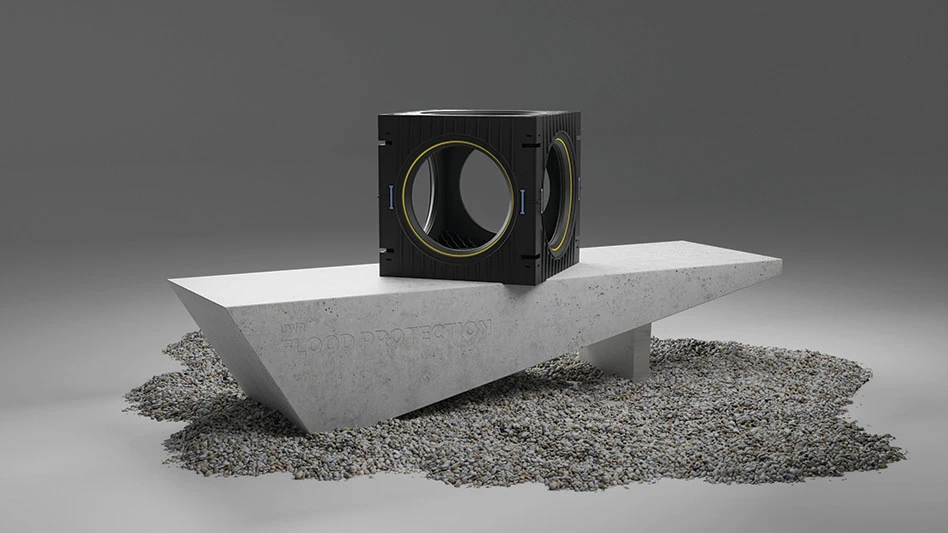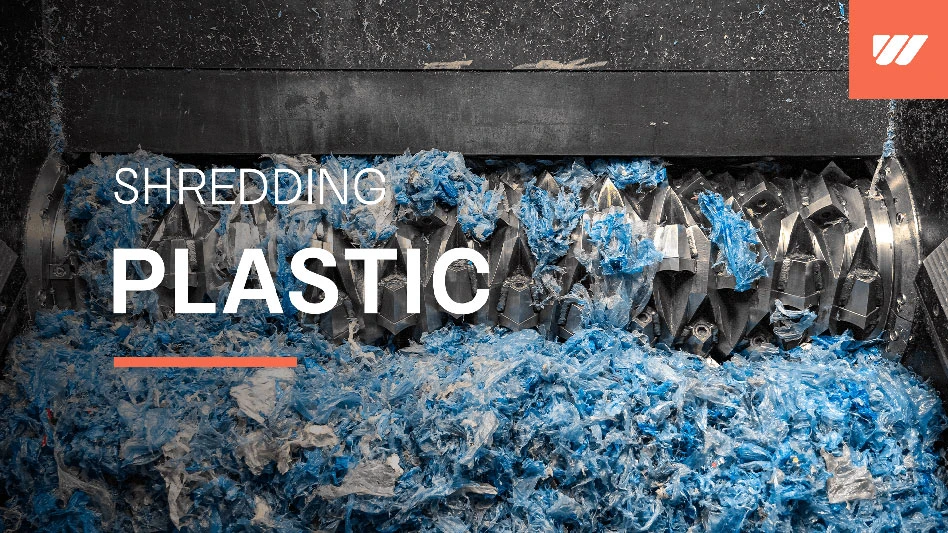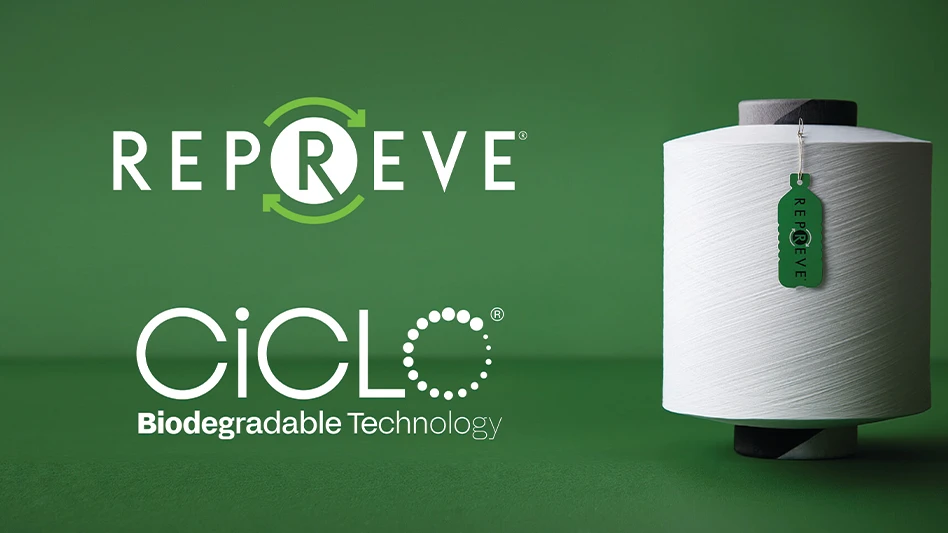
The SHiFT Vehicle Retirement Initiative, which is powered by Advanced Remarketing Services (ARS), launched in late 2023 to help consumers and companies responsibly recycle their end-of-life vehicles. It also offers automotive recyclers an alternative to online auctions, which have become the primary venue for selling salvaged vehicles.
“In a nutshell, our mission at SHiFT is to recycle as many vehicles as we can in the most sustainable way we can,” Director of Vehicle Retirement Services Chapin Griffith says, adding that one of the core tenets of SHiFT is that when consumers or fleet partners donate through the program, their vehicles’ internal combustion engines will not be resold, enabling SHiFT to calculate the carbon avoidance of retiring these vehicles.
Prior to joining SHiFT in the fall of 2024, Griffith designed cars for Ford as an engineer and product manager and then managed used vehicle value forecasting for fleet appraisals before co-developing Amazon’s national fleet remarketing business.
Although SHiFT specifies that engines from donated vehicles cannot be sold, Griffith says auto recyclers participating in the program still can make money off them.
“Even though the program requires a motor to be decommissioned in the sense that it can’t be sold in the whole working unit, recyclers are not prevented from profiting off of the good used components,” he says. “It’s basically a way to encourage participation without them feeling like they’re being penalized for agreeing to recycle the vehicle at a high level.”
Griffith says the older the vehicle, the more the SHiFT program makes sense from an emissions-reduction standpoint.
SHiFT also works exclusively with companies committed to environmentally sustainable, whole-car recycling, prioritizing Certified Automotive Recyclers (CARs). CAR is the professional standard established by the Automotive Recyclers Association (ARA), Manassas, Virginia, designed to help recyclers excel in general business, waste and hazardous material handling, safety and customer service.
“We bias towards partners that are CAR-certified because of the meticulous compliance to environmental standards and best practices, but at a minimum we only work with licensed auto recyclers who meet all state and federal environmental requirements and who commit to retiring the engines of these vehicles,” Griffith says.
Automotive recycling companies that work with SHiFT must sign an affidavit that they will comply with these standards and are audited through the SHiFT program to ensure compliance.
“We’re creating a network of recyclers who are agreeing to process vehicles at a high level of efficiency and environmental impact,” he adds.
In exchange for that pledge, recyclers are part of a closed-loop network where they can purchase vehicles without going through the auction process.
“We wanted to provide a solution that takes a lot of the good environmental work that has been happening in places across the auto recycling industry and roll it up into a singular brand promise and at a national level,” Griffith says of SHiFT.
Powered by ARS
ARS, a Middletown, Rhode Island-based technology company that focuses on the automobile remarketing and recycling sector, powers SHiFT.
ARS runs vehicle donation programs for several nonprofits, returning 80 percent of the proceeds from the sale of these vehicles back to these organizations. According to the company, it has raised more than $350 million for charities since its founding in late 2006.
ARS focuses on older, high-mileage and end-of-life vehicles (ELVs), providing solutions for consumers, charities, auto lenders, fleets, insurers and dealers.
Prior to launching SHiFT, ARS directed more than 35,000 vehicles to recyclers on behalf of its charity, government, manufacturer and insurance partners. It describes SHiFT as “a natural evolution of the important environmental work the ARS team has performed over the years.”
SHiFT provides fleet partners with what it calls a hassle-free and efficient cost structure for ELV retirement while also giving them credit for their environmentally responsible decisions.

An auction alternative
Auction sites have expanded the audience for salvaged vehicles, with Griffith saying an estimated 30 percent of end-of-life vehicles in the U.S. are sold to export markets through these sites.
As a result, U.S. automotive recyclers purchasing through these sites must pay more to add vehicles to their inventories.
The environmental impacts associated with export sales made on these sites might not be ideal, either.
For example, the vehicles sold through auction sites could be lacking working emissions control systems, Griffith says, which would prevent them from operating in the U.S. However, international buyers often are in countries that don’t have the same emissions regulations as the U.S.
“What SHiFT does is it’s guaranteeing that these vehicles are going to be recycled by domestic and licensed auto recyclers and that that engine is going to be retired,” Griffith adds. “We think that a significant portion of those vehicles being recycled with licensed domestic auto recyclers is a better outcome for the environment and good for our economy.”
Auto recyclers that work with SHiFT benefit by avoiding the fees related to auctions and creating customer-facing programs to attract vehicles that are brought directly to them.
Vehicles donated through SHiFT are sold directly to auto recyclers at discounted prices because engine resale is not permitted. However, parts reuse is maximized, which he says is better for the circular economy and environment.
SHiFT accepts any vehicle, regardless of condition, date of last inspection or registration status.
“For our fleet customers, there’s a point where their margin becomes so small on vehicles that are going through the wholesale auctions” that donating that vehicle to get a tax write-off and the environmental offset is more attractive, Griffith says.
To date, SHiFT partner salvage yards and recycling centers have recycled nearly 90 percent of every vehicle received through the program.
SHiFT bases its vehicle prices on national scrap rates by weight.
“The curb weight is the biggest impact to that, and that supports the model well,” Griffith says, adding that recyclers likely will receive a donated vehicle that is in decent shape, allowing them to maximize parts value. “But, at a minimum, they’re going to get the scrap value.
“We actually discount vehicle sales even more heavily to CAR-certified yards to incentivize participation. We want to bias toward using those yards.”
Recyclers’ perspectives
Jonathan Morrow, president of M&M Auto Parts Inc., a CAR-certified recycler with locations throughout Virginia, joined SHiFT at its inception. He was familiar with ARS, which he describes as a “great partner with the auto recycling industry,” having purchased cars from the company.
A former ARA president, Morrow had the opportunity to be brought into the loop on what ARS and ARA were planning with SHiFT prior to its launch.
“SHiFT is another avenue to secure parts and introduce them to your inventory at a good price,” Morrow says.
He notes SHiFT vehicles are offered through the ARS platform first to CAR recyclers. Pictures of the vehicle are included, and recyclers must pick up or arrange transportation for the vehicle.
Purchasing cars through SHiFT benefits the association, the environment and recyclers, he continues, noting that individuals and companies using the program do so for environmental reasons and to ensure cars are safely depolluted and recycled. Unlike Cash for Clunkers, or the Car Allowance Rebate System (CARS) in 2009 that was designed to stimulate auto sales and get older, less fuel-efficient vehicles off the road and required engines to be rendered permanently inoperable by pouring silicate into them, SHiFT allows engine components to be resold.
M&M has bought roughly two dozen vehicles through SHiFT since it launched.
“Most of ours have come through extraction exercises from the fire department,” Morrow says, adding that M&M recently opened its own self-service yard, and the vehicles the company can purchase through SHiFT would be ideal stock.
He says his company’s goal in participating in SHiFT is to raise people’s awareness that this is an option for their unwanted vehicles that ensures environmentally friendly disposal.
Brian Bachand, CEO of CAR-certified Westover Auto Salvage of Belchertown, Massachusetts, has worked with ARS for about a decade and has been satisfied with its services and opportunities.
“However, with the arrival of the [electric vehicle] mandate not so long ago, our business started to look into how to stay current, relevant and ahead of the curve,” Bachand says.
The two biggest factors that drew him to SHiFT are its partnership with ARA’s training institute, ARTI, and SHiFT’s mission to reduce carbon emissions by removing these vehicles from the road in an environmentally friendly fashion.
Bachard expects Westover Auto Salvage to benefit from the program by increasing parts sales, its core program and number of vehicles processed, inventoried and crushed.
“However, it is the intangible benefits of this program that remain intrinsic to what we do as auto recyclers,” he says, mentioning strengthening participants’ reputations as thought leaders, funneling resources into ARA to increase the impact of ARTI and addressing the burden that unwanted vehicles would represent without auto recyclers.
Bachard expects to buy at least one vehicle through SHiFT monthly, though that number could be as high as four. The challenge for him is collecting the vehicles.
“Not owning my own tow truck and my demographic play into the logistics of distance to travel and budget [for] this endeavor,” he says.
By way of comparison, Westover Auto Salvage purchases 10-15 vehicles per week via auction sites and another 10-15 per week through private parties.
However, Bachard sees considerable market opportunity for SHiFT and its potential to educate consumers not only about the program but also on the auto salvage industry in the U.S.

Consumer education
SHiFT will create a platform to educate consumers about vehicle recycling in partnership with its automotive recyclers, Griffith says, with the goal to make it as common as cardboard or aluminum can recycling by appealing to environmentally conscious consumers.
“One of the campaigns we’re working on is digital marketing to expand the exposure of the SHiFT program,” he says, which involves a vehicle donation link on recycling partners’ websites.
“Similarly, we are rolling out links and affiliate pages on our domain to auto recycling partners that have signed up.”
Program impacts
Since SHiFT was founded, the initiative has received donations from more than 30 states and has about 350 participating recycling yards, according to Griffith.
“Including fleet business that we’ll do, we’re on track to do over 10,000 vehicles in this calendar year,” he adds.
The program is expanding internationally, too, having signed up Parts Plus of Australia. “This has been a year of incredible progress for SHiFT, and we are grateful for the partners that have helped us make these inroads into retirement of ELVs nationwide,” Griffith says. “Looking ahead, we are eager to bring the impact of SHiFT to a global audience and continue to help consumers and fleet operators find sustainable and economical solutions for vehicle retirement.”
Get curated news on YOUR industry.
Enter your email to receive our newsletters.

Explore the April 2025 Issue
Check out more from this issue and find your next story to read.
More from our latest newsletter
- Nonferrous heavyweights
- Updated: Grede to close Alabama foundry
- Foreign Pollution Fee Act addresses unfair trade practices of nonmarket economies
- Unifi launches Repreve with Ciclo technology
- Recycled PP from Polykemi, Rondo Plast used in flood protection product
- Study looks at potential impact of chemical recycling on global plastic pollution






